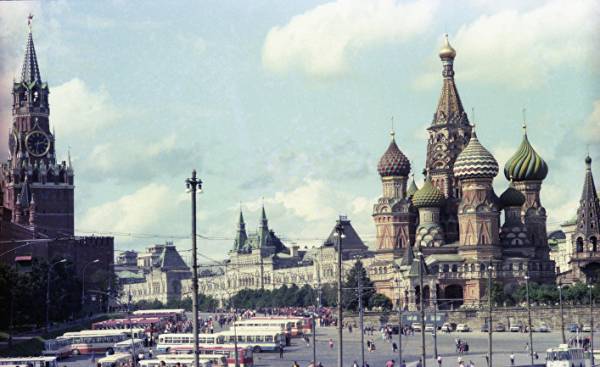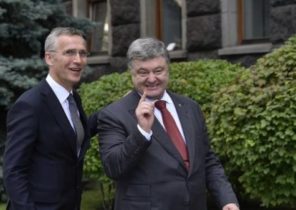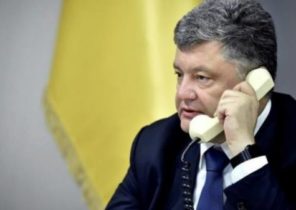
Jose Milhazes, referring to one of the most famous Portuguese journalists, one of the few among his countrymen, which became the direct witness of the transition from Soviet Union to modern Russia. Observador publishes an excerpt from his autobiography.
Born in póvoa de Varzin 2 Oct 1958. He studied at the Seminary only after that he graduated from high school. In 1977 he decided to move to Moscow because he wanted to learn more about communism.
Began working as a correspondent in various Portuguese media (now also an employee Observador), but it happened randomly after the Portuguese asked for the writing of the first reports from the Council.
This book tells the story of Milanesa, written by himself. It begins with childhood and ends with a return to Portugal, 38 years later. Observador publishes an excerpt from the fourth Chapter in which the author recalls the arrival in the USSR, moving to a new residence, the classmates, the adaptation to the language, food and drink.
We landed in Moscow airport Sheremetyevo in 20 hours 40 minutes (17:40 in Portugal) on 10 September 1977. The first big surprise was the passport control and the Luggage check just before the entrance to “Paradise”. Pausing a long and stern look on his face (an expression such as a smile on the faces of the guards did not exist by definition) on our faces and documents, customs officers put a stamp in the passport, after which it was the stage of checking Luggage, more time-consuming and meticulous. One of the guests with me Portuguese students were asked to open the suitcases. I was so impressed by their contents — embroidered bed sheets, nightie, sanitary pads, sweaters, shirts, a few pairs of shoes, and so on and so forth — that asked, I do not dowry to the wedding. Then I learned that she was the niece of one of the leaders of the Association of Portugal — the USSR and came, already knowing what awaits her.
I immediately found reasons to justify such a rigorous inspection and a rich dowry. The first was protection against the machinations of American imperialism and the CIA, and the second measure to combat the petty-bourgeois habits.
At the airport we were met by Luis Vieira, a student from Madeira, who arrived in the USSR a year ago and already spoke fluent Russian. After several hours of waiting at the airport to the old bus went to the hotel “University”. There I was placed in room where has rested a few people. I lay down on the cot that was free.
The next morning I was taken to the doctor, took tests, and then gave coupons for food. Almost everything was new, and almost all had to do for the first time. In the student cafeteria began my acquaintance with Russian cuisine. Cereal that I never ate tomatoes with sour cream, cucumbers with the same, yogurt, jelly drink (Kisel), tea, black bread and so on. I chose white bread, boiled eggs, sausages and a glass of drink that vaguely resembled coffee. For lunch the same shock, but stronger: soup with sour cream, meat sauce, also on the basis of sour cream. In short, I repeated boiled eggs and sausages.
As the days passed, and arrived with me the Portuguese settled in different parts of Moscow and other Soviet cities. The girl with a dowry, when she was told to go to Voronezh, located a few hundred kilometers South of the capital, began to cry, though tears did not help. At that time I expressed my willingness to go instead of her, because I thought that there is no difference in living standards between the cities and regions of the USSR did not exist; I was convinced of the distinction between town and country, between the province and the capital have long been overcome.
In the end, I stayed in a hotel alone, and almost a week after her arrival in the USSR, I announced that I was going to live in Moscow where I have to study at preparatory courses before you arrive on historical faculty of the Moscow state University (MGU im. Lomonosov), and asked to collect things for the move to a student Dorm.
This hostel was on the street Shvernika, named in honor of one of the senior leaders of the Stalinist era, and was built in the late 60-ies of the twentieth century as the “House of new life” for singles and young couples. This project was aimed at formation of its citizens the Communist community. The apartment consisted of one or two rooms and a bathroom. Each floor had only one kitchen, where there were some electric stoves. On the other hand, the building was a cafe and a huge dining room, a cinema and an indoor pool. But since this idea has not enjoyed great success with the Muscovites, a 16-storey building became one of the best student dormitories of Moscow state University (im. Lomonosov).
There they put me in a room with three other students: a Peruvian and two Panamanians. To establish contact with each other, we was not difficult because the language barrier is not really there, but things very quickly went wrong. One of the Panamanians terribly miss my parents and friends and couldn’t stop crying. Peruvian Luis all night played the guitar and sang songs, unable to sleep because of the time difference and a yearning for a friend, who had in Latin America.
In another room lived two Portuguese, Dominican, and Greek, but because the relationship between South American and Europeans have corrupted to the point of battering, we decided that I move in with him, and the Dominicans settled in my place. So my neighbors were Celso, with whom I was already familiar, joão and Greek Andreas. However, we were soon joined by another Portuguese, Antonio, who lived in the room with the Arabs and could not get used to their customs and traditions, for example, the regular reading of prayers. Thus, we began to live five together in one room, and as it did not fit the correct number of beds, we had to move two together so they could sleep three people.
In addition, in the same room, we managed to fit a young man M., who came to the USSR to study the violin and was sent to Baku, capital of Azerbaijan, the city where he once studied Angolan President Jose Eduardo DOS Santos. The young man refused to leave Moscow, arguing that in Baku there are no prerequisites for study. Besides, from this city came the news of the incidents of racism, xenophobia, etc. Must emphasize that he was not only the Portuguese, who asked the PCP (Portuguese Communist party) about the transfer to Moscow for the same reasons. In the case of M. the son of a famous Portuguese conductor and pianist, Jorge Pires (Pires Jorge), a representative of the Communist party in the Soviet Union, could solve the problem with the translation, but M., who is tired of long waiting, and countless bureaucratic obstacles, decided to return home.
Meanwhile, a group of us were taken to the State Department store (GUM), located on the red square, and there were given some clothes and shoes: blue tracksuit for winter and summer coat similar to those worn in the cold season, the Soviet leadership, but without fur collars, shoes with zippers and sneakers. For those like me, who arrived almost without clothes, and the approaching hard times, because the monthly stipend of 80 rubles, which in Soviet Union was equal to minimum wage, barely enough for food. Sometimes parents or brother Philip sent me in the letters that ten canadian dollars, a bill of ten pounds, which was some help but not sufficient. To purchase Soviet clothes — fashionable or not — they are clearly not enough.
Me and a few other guys rescued Celso caught the most Thrifty of us: he gave us his own clothes and shoes. His pants, shirt and coat were us, “a little” on the small side, but other exit at us was not. We also had a tour of Moscow, and the city left me with the most pleasant experience. Red square, the Kremlin, the Bolshoi theatre, the giant buildings of the Stalin era, the metro blinded me with its magnificence. I was also struck that in the center of the capital was circulated a few cars, and almost all of them were identical in appearance. It struck me that sometimes we were approached to exchange the icons on chewing gum, but it was seen, at least by me, as children’s curiosity to something useless and superfluous. In fact, I thought they were attracted by “Western stuff” because anything other than that, they had no shortage.
Meanwhile, it’s time to start studying at the preparatory faculty where, in addition to the Russian language taught history, geography and literature of the Soviet Union. I arrived late so I had to speed up the pace to catch up with the others. In my group was still Portuguese, Malian, Finnish, Uruguayan, Iraqi, two Congolese and laitance. (I hope I haven’t forgotten anyone…)
We are well with each other, get along, and the teachers were excellent, very attentive and patient. The education level of students was completely different, meanwhile, all of us had to prepare to study at the University. University or in the worst case, in any high school in the Russian province or any other of the 15 republics of the Soviet Union.
The first challenge was to learn to read and mainly to draw — Yes, because the stage of letters was then the Cyrillic alphabet. Phonetics was another stumbling block for the native of the North of Portugal like me. The biggest problem was not to confuse “v” and “b” because the first sound in the Cyrillic alphabet represented by the letter “b” which is in Latin alphabet. The Latin phoneme “b” is equivalent to the Russian “B”. In General, this was the reason for many funny situations, because Russian language is not devoid of pitfalls. Then there were the verbs of motion and declination, from which my head was spinning. “If I did not do too well given English or French, what can we say about the Russian?” — worried I asked myself. Was afraid not to cope with the task.
But the advantage of living in a foreign country is that, like it or not, but the local language is necessary though, because that depends on your survival. Had to go shopping for groceries, the bookstore for notebooks, pencils, books, and, of course, not without small incidents. Often it happened: a man approached me and started talking, I answered him learned the phrase “Ni ponimaiu”. He gave me a suspicious look, gave a lengthy tirade in Russian and left with a very unfriendly look. Later I began to understand the reason of this reaction: I said “Ni ponimaiu” with such a flawless accent that people thought I was bailing on him.
Pretty soon I also realized that to speak Portuguese in public places in Moscow may not be too safe. One winter I came back with my Portuguese buddies in the Dorm after exercising. If you are going to sit on one of the seats in the tram, I don’t remember exactly why, probably from dissatisfaction with the cold — swore loudly in Portuguese. I just sat down, as behind me I heard a female voice: “are You Portuguese?” I looked around and blushed, ready to sink into the ground. “Yes, we’re Portuguese, I’m sorry,” I stammered.
It was an elderly lady, dressed in all black, sophisticated and aristocratic look, as if released from some classic novel, her Portuguese was perfect. She told me that he supports the Soviet power, but in his past life he studied in Coimbra and would like someday to re-visit this city and Portugal.
The surprise caused by the lady in black, the strength is not inferior engulfed us at the beginning of the feeling of shame. At that time I was already an atheist, and in reincarnation is not believed, so thought it was some political provocation. We got off the streetcar quite intrigued by the meeting, which gave us a signal in relation to the universality of the language of camões.
Later I learned that this lady was one of the first teachers of Portuguese in the Moscow Institute of foreign languages. By the way, at that time our language was used in the Soviet Union very popular, as in the Soviet orbit were former Portuguese colonies in Africa. Moscow had to send, mainly in Angola, hundreds of military advisers, translators and other professionals. Because the money earned there, even in the comparison was not with the Soviet wages, wishing there was more than enough. And “proletarian internationalism” was nothing more than propaganda to cover gegemonsky Kremlin’s foreign policy. At least I personally have not met a single Soviet citizen who would go to Africa to help the people of this continent to build socialism only in the ideals of the business.
That’s why many of the Soviet students who wish to practice Portuguese, tied with our communication, but the problem was that we also wanted to speak in Russian. Had to find a compromise.
At first glance, citizens of the USSR people seemed very cold, grim and harsh, causing a generalized image of Soviet man is largely lost, but once the ice was broken, we found in most cases — as it occurs, perhaps, in any country are friendly and hospitable people.
One of my first Soviet friends became my dear friend and teacher Rashid Kaplanov. It was a Caucasian Prince, the descendant of the prophet Muhammad’s father. His mother was Jewish. When one day he heard on one of the Central streets of Moscow the language of camões, approached a group of my Portuguese buddies, I was not among them. But we had to meet like we had a true friendship that lasted until his death by Rashid in November 2007.
[…]
After receiving the first scholarship, we gathered six of us or seven of us to celebrate this event, and together with Rashid went to dinner at one of the best and fine restaurants in Moscow, located in the hotel national a few steps from red square. Approaching the door we noticed a sign where in Russian it says “no seats Available” but Rashid explained to us that it served only to doormen could earn, or that the waiters were less of a hassle and that we need to find some workarounds. We entered the restaurant through the hotel and found that there really was a lot of empty tables and chairs.
That’s when we had the first time to taste the best that can offer Russian cuisine: red and black caviar, sturgeon and salmon, salad and, of course, Crimean sparkling wine and vodka. We enjoyed Russian songs performed by a wonderful soloist who sang to the accompaniment of excellent balalaika. It was truly a feast of kings. Which lasted until the closure… the Hangover came the next day and not so much because of alcohol, how much because we spent almost all the money that was supposed to eat during the month. The debt was able to take Portuguese girls who, in addition to being saved, and even was on a diet not to gain weight — at that time a common phenomenon among foreign women. One of our friends Dominican students, for example, came to Moscow to enroll in the school of the Bolshoi ballet, but was forced to change course because a couple of months managed to gain more than 20 pounds.
All this festive atmosphere delighted me. When October 7, approved the Constitution of the USSR, my pals and I went to the shop to buy a few issues of the newspaper “Pravda”, organ of the Central Committee of the Communist party of the Soviet Union (CPSU) and on the event marks, which in that day went on sale. We decided to send them to friends in Portugal, and thus to share with them their joy. What kind of pride filled us the opportunity to see the Secretary-General álvaro Cunhal RSR and listen to his speech at a ceremony dedicated to the 60th anniversary of the Great October revolution in the Kremlin! His speech exuded optimism.
In the days of these celebrations at the preparatory faculty was organized a concert of students from different countries. Portugal also had their representatives. Guitar joão we decided to sing revolutionary songs, such as Grândola, Vila Morena, Avante, etc., but everything went wrong. We sang each in his own way, and I solo on the words “Terra da fraternidade!”, terribly out of tune. Perhaps for lack of habit of performing on the stage or because of a fatal actions of tobacco on the vocal cords. The audience roared with laughter, but we still managed to get to the end of our performance. It was a complete failure…
After the concert there was dancing, where in addition foreign students present three Russian girls. My friend, the Portuguese began to dance with one of them that seriously pissed off some Arab students, who had already put the girls eyes. I and another my friend, the Portuguese decided to come to the aid of compatriot and began to dance with the other two, which caused our classmates even more discontent. Such disputes often ended in a fight, but this time we managed to avoid it, we just didn’t react to the provocation.
Was still the case after receiving another scholarship, we finally decided to eat normally and bought pasta, meatballs and tomato paste. The dish turned out delicious and we ate so much that literally sweating (Central heating in the Dorm has been included in anticipation of a long winter), then we removed the shirt and unzipped his pants to feel comfortable. Suddenly into the room without knocking entered Lebanese girl and asked my neighbor, could he lend her biology textbook to prepare for the exam. Without waiting for permission, she jumped to the Desk, grabbed the book and ran out of the room.
Our future biologist with a naked torso, picked up his pants and ran after her to return the textbook. When he grabbed her by the shoulder and took the girl’s hands the book passed by a Syrian. The Portuguese returned to the room with the trophy, however, he was followed by the enraged Arabs, who imagined everything differently. We are saved only by the fact that our room sat several of the Portuguese, who at the sight of this picture burst into such hysterical laughter that the Syrian embarrassed and retreated, never having defended the honor of a Muslim girl.
A few days after student ball one of the Russian girls invited us to visit his parents ‘ apartment, which at that time was not in Moscow. What struck me most about girls is almost complete indifference to politics, their conversations about politics were reduced to the cynical remarks of the Soviet leadership. They were interested in only clothes, cosmetics, music, and other Western products, although studied at University.
We drank a bottle of German beer and smoked American cigarettes, bought us “the birch” (the online store where purchases can exclusively foreigners and in convertible currencies), then danced to the song of Joe Dassin — it was the only cassette with foreign music, came to the students.
Another time we went to see the just-released Moscow cinemas the film “Office romance”. We are talking about the brilliant and ironic Comedy, though at that time my Russian has not allowed me to fully understand the work of Soviet film Director Eldar Ryazanov. Yes, and my first novel with a Russian girl ended the same.
Studying at the preparatory courses went on as usual. Little by little I started to speak and understand Russian language, which allowed me to have more diverse Dating. Some of them were rather strange properties. One winter a teacher asked me and one of my classmate Portuguese dinner with one of his friend who was interested in Portuguese language and wanted to meet us. We willingly accepted the invitation, and he took us to a good Moscow restaurant where they served excellent dishes of Russian and Caucasian cuisine.
The food was perfectly flavored with wine, champagne and vodka, we talked a lot, Russian friend asked us lots of questions and at the end promised to contact us. Assuming it was an employee of the state security Committee (KGB) of the USSR, which was intended to test how we could be useful to “protect the socialist state”, but at least with me, he contact do not enter.






